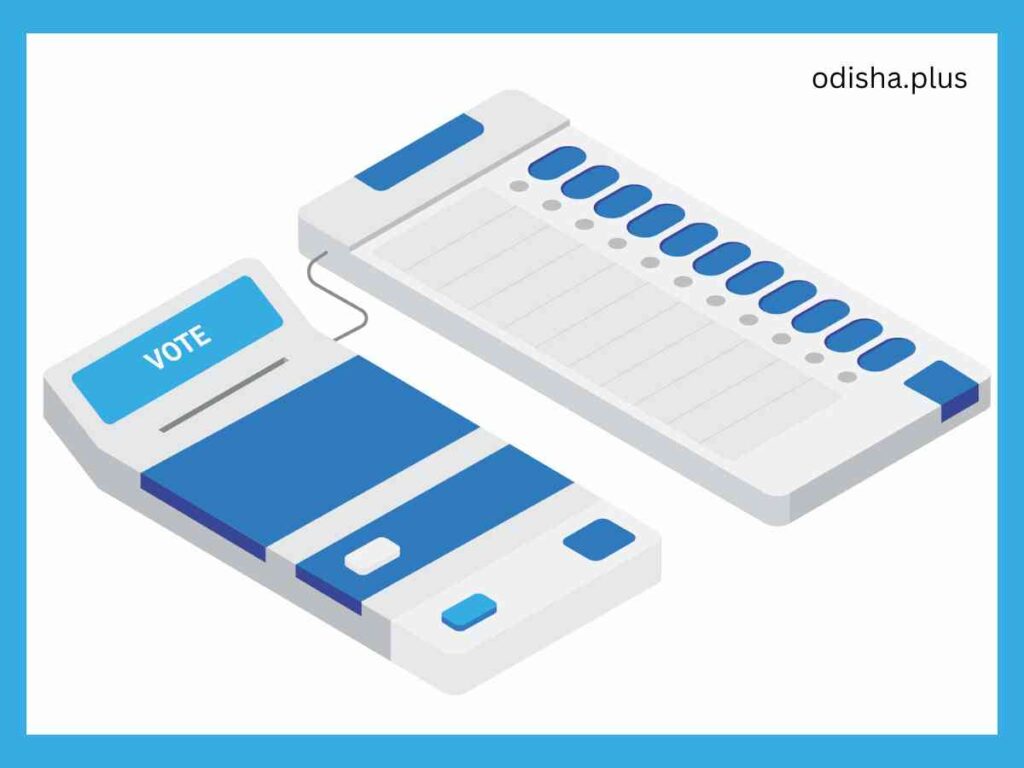The recent Assembly elections in Maharashtra & Jharkhand have brought this debate to the forefront
Tejeswar Patnaik

The reliability of Electronic Voting Machines (EVMs) has been a recurring topic of debate in Indian politics, often resurfacing after elections, especially when results are contested. While the Election Commission of India (ECI) and the judiciary have consistently vouched for the security and credibility of EVMs, skepticism persists among sections of political parties and civil society. The recent Assembly elections in Maharashtra and Jharkhand have brought this debate to the forefront once again, raising questions about the balance between trust in technology and the integrity of the electoral process.
The Maha Vikas Aghadi (MVA) alliance comprising Congress, Shiv Sena (UBT), and NCP (SP) suffered a defeat at the hands of the BJP-led Maha Yuti alliance, which includes the Shiv Sena and the Ajit Pawar faction of the NCPT his poll outcome has deepened skepticism about EVMs, a concern raised intermittently over the past two decades.
Core Question
The core question is whether EVMs can be tampered with, a scenario that could have severe implications for India’s electoral process. Globally, opinions on the use of EVMs remain divided. Some European countries, such as France, Germany, and the UK, prefer traditional ballot papers, emphasizing transparency over efficiency. Meanwhile, nations like Brazil, India, Venezuela, and the Philippines rely on EVMs for their elections.
The difference in approaches is striking, raising pertinent questions about why many developed nations avoid EVMs. Some argue these countries prioritize democratic transparency over technological convenience, a point highlighted by the Association for Democratic Reforms (ADR) during a Supreme Court hearing.
Recently, the Congress party alleged discrepancies in vote counts, claiming that EVMs with lower battery charges showed results in their favor, while those with higher charges did not. However, these claims remain unproven. The Election Commission of India (ECI) has categorically dismissed such allegations, reiterating that EVMs are tamper-proof and secure, with safeguards like encryption and tamper-evident seals.
The Honorable Supreme Court has consistently upheld the credibility of EVMs. In the Association for Democratic Reforms (ADR) vs. Election Commission of India case, the Court rejected pleas to revert to ballot papers, emphasizing that EVMs are simple, secure, and user-friendly.
It affirmed voters’ rights to question EVMs but cautioned against baseless accusations that could undermine confidence in elections. The Court also highlighted the importance of the Voter Verifiable Paper Audit Trail (VVPAT) system, which enhances vote verifiability and accountability, strengthening public trust in the electoral process.
India’s journey with EVMs began in 1982 with their trial in a Kerala constituency. By 1998, EVMs were deployed in 25 state Assembly constituencies, and by 2004, they were used nationwide in Lok Sabha elections. The introduction of VVPATs further bolstered transparency by enabling voters to verify their votes. The Supreme Court directed their phased implementation during general elections, solidifying voter confidence in the system.
EVMs offer numerous advantages over traditional ballot papers, especially for a vast electorate of nearly 97 crore voters. Voting is straightforward, as pressing a button eliminates issues like torn or improperly marked ballots that lead to invalid votes. EVMs also prevent booth capturing by limiting voting speed to four votes per minute, making fraudulent practices difficult. Additionally, automated vote counting ensures accuracy and eliminates delays caused by manual errors.
Election Defeat
Criticism of EVMs often arises from political parties, but such concerns typically follow electoral defeats. Despite repeated allegations, courts have consistently dismissed claims of tampering due to a lack of credible evidence. In a recent verdict, the Supreme Court rejected a petition seeking a return to ballot papers, reiterating its trust in the reliability of EVMs.
The BJP-led Maha Yuti alliance’s landslide victory in Maharashtra can be attributed to several factors beyond the EVM debate. Welfare schemes such as the Mukhyamantri Ladki Bahin Yojana, which provided ₹1,500 monthly financial aid to over 23 million women, significantly boosted female voter turnout. Other measures, such as stipends for apprentices and free pilgrimage visits, further enhanced the alliance’s appeal.
Additionally, the Maha Yuti successfully consolidated Other Backward Classes’ support, which proved decisive. Some analysts suggest that communal polarization also played a role, with the Maha Yuti effectively consolidating Hindu votes. Meanwhile, the opposition MVA alliance struggled to offer a compelling counter-narrative, further tilting the scales.
In Jharkhand, a contrasting scenario unfolded, with the JMM-led INDIA bloc achieving a two-thirds majority in the Assembly elections. Welfare schemes like the Maiya Samman Yojana, implemented by the incumbent government, were key factors in securing their victory. This trend highlights the growing influence of welfare politics and populist promises in shaping electoral outcomes.
Freebie Politics
The emergence of freebie politics as a decisive factor in elections cannot be ignored. Voter preferences are increasingly shaped by welfare measures, often overshadowing debates on governance and long-term policy planning. This reality aligns with the Supreme Court’s stance on EVM tampering claims, emphasizing that electoral outcomes are more influenced by political strategies and voter engagement than by the mechanisms of voting itself.
The debate surrounding EVMs is multifaceted, encompassing concerns about transparency, technological reliability, and electoral integrity. While doubts about tampering persist, the ECI has implemented robust security measures to safeguard the electoral process. Moving forward, the ECI and the government must address these concerns effectively. By maintaining transparency and fostering public trust, they can ensure that the electoral process remains credible, leaving no room for doubt in the minds of voters.
(The writer is a former Dy General Manager of Bank of India. Views expressed are personal)
#EVMs #IndianElections #ElectionCommission #MaharashtraElections #JharkhandElections #VotingTechnology #ElectoralIntegrity #DemocracyInIndia #VoterTrust #TamperingConcerns #VVPAT #PoliticalDebate #ElectoralReform #FreebiePolitics


























